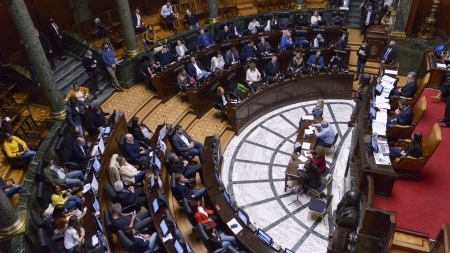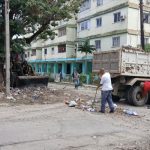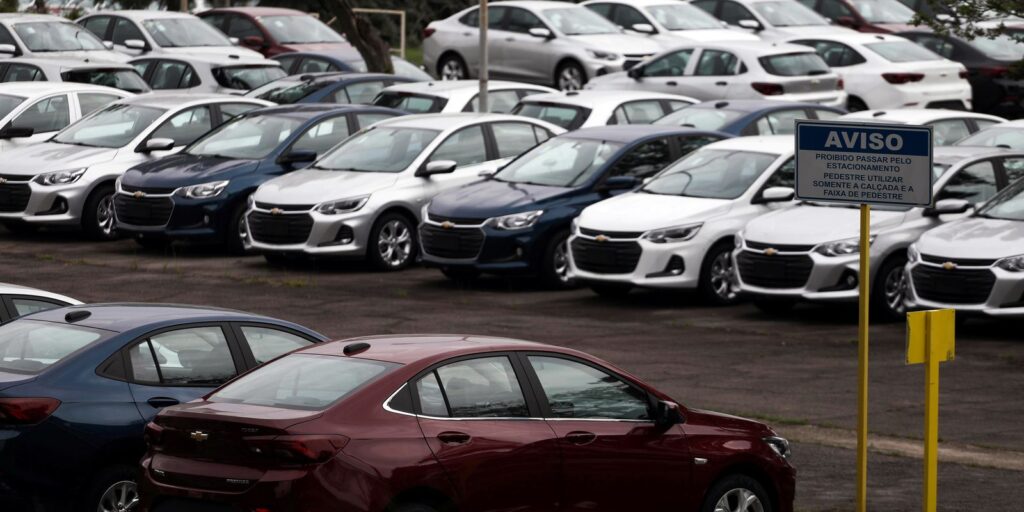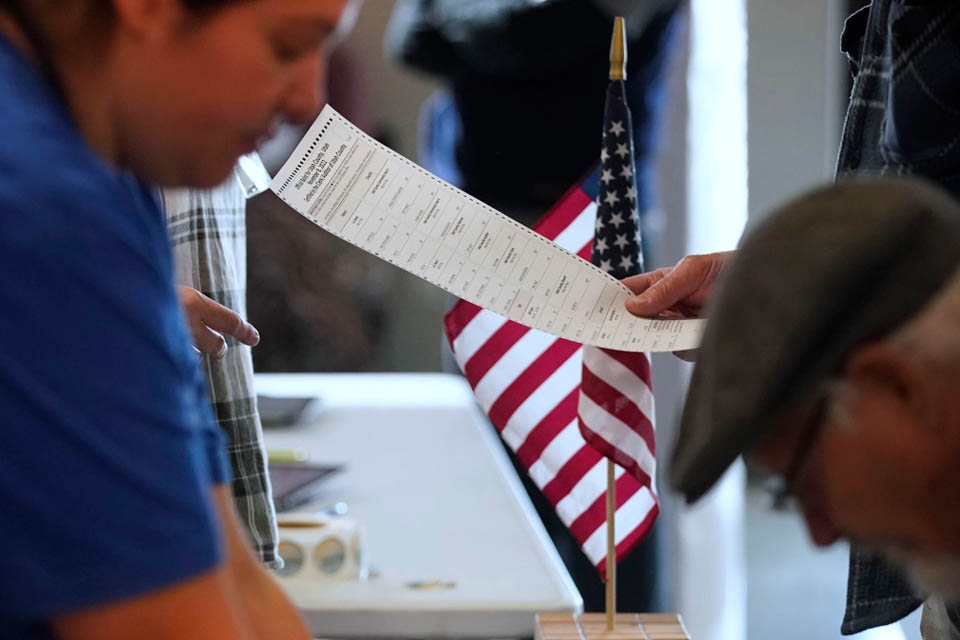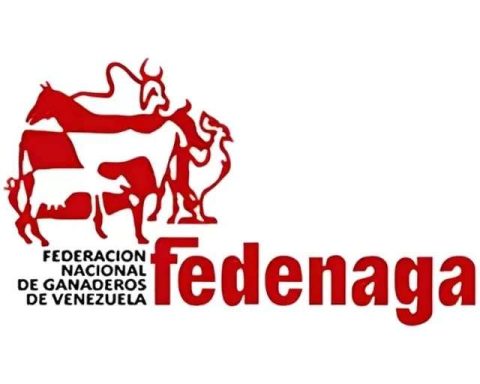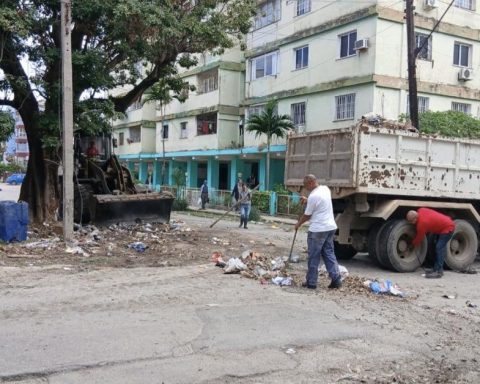The subway network of the City of Buenos Aires does not have items assigned for its extension in 2023, thus adding the fourth consecutive year without expansions planned for the network, based on the Budget project sent to the Buenos Aires Legislature .
The Budget Law, which will be debated in the Buenos Aires Legislature next Thursday, does not contemplate allocations for extension works, although it does have an item in which it foresees works to “increase the transport offer by improving the existing network.”
Since June 2019, when the Correo Central, Catalinas and Retiro stations of line E were inaugurated, there are no stations under construction in Buenos Aires, an unprecedented event that has not been recorded since 1973.
Subways in CABA and cities in Latin America
Although Buenos Aires inaugurated its first subway line in 1913 and became the first city in Latin America to do sothe track extension has been stalled at 56.7 kilometersbeing surpassed by systems such as the Caracas (70.5 kilometers), San Pablo (90 km) and Santiago de Chile (140 km), within the region.
In the case of Santiago de Chile, line 7 is currently under construction, with 26 kilometers in length, in Sao Paulo line 6 of 15.3 kilometers, while in Madrid lines 5 and 11 are being extended.
Non-inclusion of subway works for 2023
“The non-inclusion of the subway works in the 2023 budget once again illustrates the lack of a transport and mobility policy by the Pro, which has been the worst management of the Buenos Aires subway in history,” he told Télam, Juan Manuel Valdés, legislator of the Front of All (FdT).
Although there are no items, there are many projects for the network awaiting financing.
the H linewhose construction began in 2001, to this day, continues unfinished and without reaching its planned headwaters (Sáenz and Retiro), making its route only between the Faculty of Law and Hospitals stations.
In the case of the extension to Sáenz, the work -which would connect the subway with the Belgrano Sur train line- was awarded to the Techint-Dycasa joint venture in August 2011, but to date it does not register any type of advance.
the projected F-line –that would connect Plaza Italia with the Barracas neighborhood and Constitución station– suffers the same fate: the budget presented for 2023 only slips that it is planned to “develop the engineering for the line tender”.
In June 2019, Subterráneos de Buenos Aires launched the first tender to prepare the project and the technical specifications that will be used for the respective tender for the work. However, and after 14 extensions, it was discharged in May of this year.
Nor does the budget mention lines G (Retiro-Cid Campeador) and I (Caballito-Plaza Italia), which are provided for by Law No. 670, approved in 2001.
“(Fernando) de la Rúa and Enrique Olivera built more subways than (Mauricio) Macri and (Horacio) Rodríguez Larreta together, who did not start any new line and only finished the works that came from previous administrations or that the national government had started as Line E between Bolívar and Retiro,” Valdés said.
The legislator detailed, referring to Mauricio Macri’s campaign platform in the 2007 elections, that “of the promised 10 kilometers per year, they did not even cover 800 meters per year.”
“Of the promised 10 kilometers per year, they did not even cover 800 meters per year”Juan Manuel Valdes
“It is frankly disappointing that a management that claims to be at the forefront of sustainability ideas in the world’s big cities has such a retrograde vision of mobility and public transport,” added the legislator.
For its part, Jonatan Baldiviezo, founder of the Observatory for the Right to the City, questioned the lack of extension of the subway, which he considers to be the “most efficient, fastest and ecological”.
“The collapse of the city’s connectivity is denied by the City Government, which continues to promote overbuilding and population density without adopting accompanying measures for the infrastructure of public services, including the subway,” said Baldiviezo.
Among the works planned by the 2023 budget is the completion of works to adapt the electrical installations of lines C and D, a new signal system for line D and improvements in garages and workshops, which, according to the Buenos Aires Government promises , would allow “reducing the intervals between trains” and “increasing the volume of passengers”.
Likewise, the purchase of “25 new formations for lines B and E”, the incorporation of elevators in the Plaza de los Virreyes and Plaza Miserere stations, and a mobile application are promised.
However, all these works, as well as the aforementioned app and the engineering of line F, have been described since the 2021 Budget prepared at the end of 2020, without registering, in some cases, progress to date.
The focus of transportation policy, on the other hand, will be on the completion of the exclusive lanes for groups called “Metrobus” in its new section located on Paseo Colón and Almirante Brown avenues.
In transport policy, the focus will be on the completion of exclusive lanes for buses, “Metrobus”, in its new section on Paseo Colón and Almirante Brown avenues
“They have decided to allocate public investment to adopt transit measures such as exclusive lanes instead of structurally improving the city’s transport with the extension of the subway infrastructure,” criticized María Eva Koutsovitis, an engineer and researcher at the Institute of Thought and Policies Public (IPYPP).
Works in subways in different procedures
From the autonomy of the City, the efforts of De la Rúa and Olivera inaugurated between 1996 and 2000 the extension of Line D from the Ministro Carranza station to Congreso de Tucumán, in the neighborhood of Belgrano.
After that, the administrations of Aníbal Ibarra and Jorge Telerman between 2000 and 2007 conce-Caseros section of line H was started and inauguratedthe Tronador and Los Incas stations on line B were completed, and the extensions to Villa Urquiza on line B and San Pedrito on line A began.
Both Mauricio Macri’s mandates marked the inauguration of the extensions of lines B and A initiated by the previous administration, and the Parque Patricios and Corrientes stations on line H.
Finally, in the During the first administration of Horacio Rodríguez Larreta, three stations on line H were inaugurated (between Santa Fe and Faculty of Law) and 3 stations of Line Ewhose civil work, however, was already completed in 2015 by the National Government.
The Buenos Aires Legislature will deal this Thursday with the 2023 Budget project
The Buenos Aires Legislature will deal this Thursday with the 2023 Budget project, which was sent by the head of government Horacio Rodríguez Larreta and which foresees expenses of 2 billion 154 billion pesos.
The initiative, among other aspects, does not contemplate for the fifth consecutive year expansion works for the subway network and contains reductions in investments in the areas of health, culture and educationaccording to union organizations that called for a march that day to the legislative headquarters, at 100 Peru Street.
From the officialdom of Buenos Aires, the Minister of Treasury and Finance, Martín Murasaid that it is a budget with “zero deficit”, since revenues will be 2 trillion 164 billion pesos, slightly higher than expenses.
When presenting the project in the Legislature, the minister also pointed out that “it is a budget without tax increases or the creation of new taxes” and a “30% drop in terms of the weight of debt interest.”
In addition, he stated that the level of public works is recovering after the Covid-19 pandemic, reaching a 15% share of total expenses next year.
Mura emphasized that the macroeconomic variables of the budget “arise from the estimates set by the national government”, which project a “growth of the Geographical Gross Product of 2%, an inflation rate in the order of 60% and a dollar at $269, 9 by the end of the year.”
He also reiterated the claim for the “untimely and unilateral removal of Federal Co-participation funds” by the national government and argued that for this reason, in 2023, the city of Buenos Aires will face a “loss of resources of 279 billion pesos”.
The Buenos Aires budget for next year is the last of the Rodríguez Larreta administration, which ends its term in December 2023. Since 2019, the year in which Rodríguez Larreta began his second term, the round of budget consultations with the Legislature has not been held in the Legislature. the ministers of each area, which generated criticism from the opposition.
Taking into account that in 2020 and 2021 parliamentary activities were affected by the Covid pandemic, the Frente de Todos demanded that the round of ministers be resumed this year, but given the government’s refusal, the bloc did not attend the committee meeting in which the budget was ruled, held on October 28 last.
“We are not going to validate this action,” said Claudia Neira (FdT), adding that the budget is not just numbers, but public policies, so it must “be discussed in depth with the ministers of each area.”
In that meeting, Together for Change (JxC) issued a majority opinion that will arrive this Thursday at the session venue, in which the only thing missing was the signature of one of its blocks, United Republicans (UK), whose referent is national deputy Ricardo Lopez Murphy.
La Libertad Avanza did not sign the opinion either.
The Buenos Aires Legislature has 60 seats, of which 32 belong to JxC, including the two from the UK.
To pass the budget, 31 votes are needed.
The opposition blocs, meanwhile, have 28 seats: Frente de Todos (19), La Libertad Avanza (6), Frente de Izquierda (3).
This Thursday will also vote, as part of the budget package, the tariff law and the fiscal code for next year.
In addition, the Legislature will vote on the second request for budget expansion of 2022 raised by the Executive Power, for 77,800 million pesos, which brings the total annual expenses of the district to 1 trillion 220 billion.
for this thursday too protests expected in front of the Buenos Aires Legislature, since both the Union of Education Workers and the Ademys teachers’ association denounce that the new budget makes an “adjustment in health and education.”
Unions from the health sector, as well as social organizations, will also participate in the protest.
